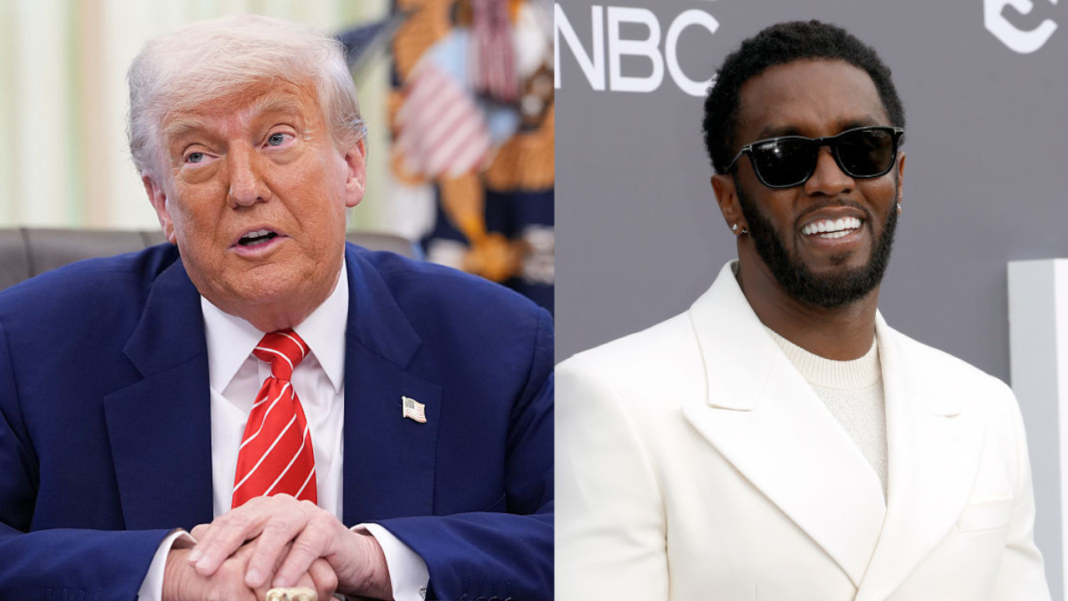The Unraveling of Diddy’s Presidential Pardon Hopes
The recent political entanglement involving Sean “Diddy” Combs and the Trump administration has sent ripples through the entertainment and legal communities. As the dust settles on Diddy’s controversial sex trafficking conviction, the prospects of a presidential pardon have taken a notable hit, as suggested by a definitive denial from the White House.
Background on Diddy’s Legal Troubles
Sean Combs, an illustrious figure in the music industry, faced significant legal challenges after being convicted earlier this year on charges related to transporting women across state lines for prostitution. His conviction was the culmination of a high-profile trial that scrutinized his actions and shed light on troubling allegations. In October, Diddy was sentenced to just over four years in federal prison, a sentence that rattled fans and followers alike, many of whom were hopeful for an intervention from the highest office.
The Initial Hopes for Intervention
In the weeks leading up to his sentencing, whispers began to swirl regarding President Trump’s potential involvement in Diddy’s case. Reports emerged that Trump was mulling over the idea of commuting Diddy’s sentence, raising anticipations among supporters of the music mogul. This speculation suggested that the Trump administration might take a more lenient stance given Diddy’s past ties and accomplishments in the entertainment industry.
Donald Trump has navigated the realm of pardons and commutations throughout his presidency, showing willingness to step in for controversial figures. However, the underlying tension stemming from Diddy’s previous public criticisms of Trump appears to have weighed heavily on the possibility of intervention.
The White House Denial
As reports from sources like TMZ hinted at Trump being “vacillating” on the decision, the White House swiftly pushed back against these claims. A spokesperson for the administration employed strong language, asserting, “There is zero truth to the TMZ report.” This rebuttal emphasized that any discussion of pardons and commutations resides solely with the president, and not with anonymous sources.
This denial marked a clear shift in the narrative, dispelling hopes that a last-minute intervention might alter Diddy’s fate behind bars.
Diddy’s Relationship with Trump
Historically, Diddy’s relationship with Trump has been marked by tension. In interviews, Trump acknowledged that although he found Diddy to be “a nice guy,” the rapper’s vocal criticisms of him during the campaign period complicated any future rapport. Trump stated, “That hostility makes it more difficult to do.” This sentiment reflects the reality that public personas and past interactions can significantly impact political decisions, especially in matters involving pardons.
Legal Team’s Push for Support
Throughout Diddy’s legal battles, his legal representatives and close associates voiced their plans to secure support from the Trump administration. However, their efforts ultimately bore little fruit. As Diddy faces the consequences of his actions, the anticipated avenue of support from political allies has been officially closed off. Instead of leeway, Diddy finds himself confronting a challenging future as he embarks on his prison sentence.
Implications for Pardons and Commutations
Diddy’s case has sparked broader conversations about the complexities surrounding presidential pardons and moral judgment in political decisions. The stark reality is that, even for influential figures, personal relationships and past conflicts can reshape outcomes in critical situations, demonstrating how the intersection of celebrity and politics can have unpredictable repercussions.
This development serves as a reminder of the unforgiving nature of legal accountability, especially for high-profile figures whose past actions can lead them into contentious scenarios. As Diddy prepares to serve his sentence, the entertainment world watches closely, pondering the implications of his case and the factors that thwarted hopes for a presidential reprieve.



